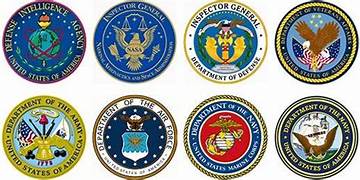18 Types of Federal Government Jobs (Including Benefits)
Federal government jobs in the United States are some of the most secure, stable, and well-respected careers available today. These roles span nearly every field imaginable—from healthcare and engineering to law enforcement and environmental protection. With nearly 2 million civilians working in the federal sector, it’s easy to see why so many Americans aim for a government career.
Whether you’re a college graduate looking to begin your professional journey or a mid-career professional searching for stability and benefits, there’s likely a federal job that suits your background and interests.
In this article, we’ll explore 18 types of federal government jobs, what they involve, and the key benefits that come with them.
Why Consider a Federal Government Job?
Before diving into specific job types, let’s touch on the advantages of working for the federal government:
- Job security: Federal jobs are among the most stable in the country.
- Comprehensive benefits: Including health insurance, retirement plans, and paid leave.
- Work-life balance: Flexible hours and telework options for many roles.
- Opportunities for growth: Clear career ladders and promotional pathways.
- Public service: The satisfaction of serving the nation and making a difference.
Now, let’s take a look at the 18 different types of federal government jobs and what they involve.
1. Administrative and Office Support
These roles keep government agencies running smoothly. Positions include administrative assistants, clerks, and program support specialists.
Duties: Managing files, scheduling, answering queries, and supporting agency personnel.
Popular agencies: Department of Veterans Affairs, Department of State, Department of the Interior.
2. Healthcare and Medical Services
With agencies like the Department of Health and Human Services (HHS) and Veterans Health Administration (VHA), the federal government is a major employer of medical professionals.
Roles: Nurses, physicians, pharmacists, psychologists, and therapists.
Benefits: Competitive salaries, federal malpractice coverage, and access to federal retirement programs.
3. Information Technology (IT)
Federal IT specialists manage everything from cybersecurity to network infrastructure.
In-demand roles: IT specialists, data analysts, systems administrators, and cybersecurity experts.
Top employers: Department of Defense (DoD), Homeland Security, NASA, and the FBI.
4. Engineering and Architecture
The federal government builds and maintains a vast array of public infrastructure.
Roles: Civil engineers, mechanical engineers, environmental engineers, and architects.
Agencies: Army Corps of Engineers, National Park Service, Department of Transportation (DOT).
5. Law Enforcement and Security
This includes roles with federal agencies like the FBI, DEA, ATF, and Border Patrol.
Jobs: Federal agents, criminal investigators, border patrol agents, correctional officers.
Key benefit: Law enforcement officers often qualify for early retirement benefits.
6. Legal and Compliance
From writing laws to interpreting them, federal lawyers and paralegals play a vital role.
Jobs: Attorneys, legal aides, compliance officers, patent examiners.
Popular employers: Department of Justice (DOJ), IRS, U.S. Courts.
7. Education and Training
Many federal agencies provide training and educational services to the public or their employees.
Positions: Training specialists, instructional designers, education program managers.
Top agencies: Department of Education, Department of Defense Education Activity (DoDEA).
8. Finance and Accounting
Every government agency needs budget analysts and accountants to track funding.
Roles: Budget analysts, accountants, auditors, and financial managers.
Agencies: IRS, Department of Treasury, GAO (Government Accountability Office).
9. Science and Research
Scientists conduct research for agencies on everything from climate change to pandemics.
Fields: Biology, chemistry, physics, environmental science, meteorology.
Popular employers: NOAA, NIH, EPA, NASA.
10. Human Resources (HR)
HR professionals help recruit, manage, and support the government workforce.
Jobs: HR specialists, recruitment officers, employee relations managers.
Key skills: Strong interpersonal communication, knowledge of federal employment law.
11. Transportation and Logistics
The federal government oversees national transportation infrastructure and logistics.
Roles: Transportation specialists, air traffic controllers, logistics managers.
Agencies: Federal Aviation Administration (FAA), Department of Transportation, U.S. Postal Service.
12. Public Affairs and Communication
These professionals manage government communication and public messaging.
Positions: Public affairs specialists, media liaisons, writers, and editors.
Top agencies: Department of State, FEMA, CDC, and White House offices.
13. Environmental and Natural Resource Management
The federal government manages millions of acres of public land and water.
Jobs: Park rangers, environmental scientists, wildlife biologists, forestry technicians.
Employers: U.S. Forest Service, Bureau of Land Management, National Park Service.
14. Intelligence and National Security
These roles are critical for protecting national interests and responding to global threats.
Positions: Intelligence analysts, linguists, cryptographers, cybersecurity specialists.
Agencies: CIA, NSA, DHS, FBI.
15. Foreign Service and Diplomacy
Represent the U.S. abroad in embassies and diplomatic missions.
Roles: Foreign service officers, consular agents, international development specialists.
Key employer: U.S. Department of State.
16. Trades and Maintenance
Vital for the upkeep of federal facilities and infrastructure.
Jobs: Electricians, plumbers, HVAC technicians, mechanics, custodians.
Benefits: Good pay, job security, and steady demand.
17. Library and Museum Services
Help preserve and provide access to important historical and cultural documents and items.
Roles: Archivists, librarians, museum curators, conservators.
Top agencies: Library of Congress, Smithsonian Institution, National Archives.
18. Military and Veteran Services
Though active military service is separate from civilian jobs, many federal roles support veterans and military operations.
Jobs: Veterans claims examiners, transition coordinators, military family counselors.
Employers: Department of Veterans Affairs, Department of Defense.
Key Benefits of Federal Government Jobs
Now that we’ve covered the job types, here’s a deeper dive into the benefits of being a federal employee:
1. Health Insurance
Federal employees have access to the Federal Employees Health Benefits (FEHB) program, offering a wide range of affordable, high-quality plans.
2. Retirement Plans
Includes both a defined benefit pension and the Thrift Savings Plan (TSP)—a 401(k)-style plan with government matching contributions.
3. Paid Time Off
- 13–26 days of paid annual leave (based on years of service)
- 13 days of paid sick leave annually
- 11+ federal holidays per year
4. Job Stability
Federal jobs are generally insulated from economic downturns, offering unmatched long-term security.
5. Work-Life Balance
Flexible work schedules, remote work options, and generous leave policies contribute to a healthier balance.
6. Professional Development
The federal government invests heavily in training, certification, and education for its employees.
How to Apply for Federal Jobs
To apply for most federal positions, visit USAJobs.gov, the official portal for federal job listings.
Application Tips:
- Tailor your federal resume (longer and more detailed than private-sector resumes)
- Pay close attention to the job announcement requirements
- Be patient—federal hiring processes can take time
Final Thoughts
Whether you’re passionate about protecting the environment, advancing science, enforcing the law, or serving veterans, there’s a federal job for you. With a wide variety of roles and incredible benefits, working for the federal government can provide a meaningful and stable career path.
As we look ahead to the coming years, now is the time to explore opportunities, build your qualifications, and take that first step toward a rewarding federal government career.


